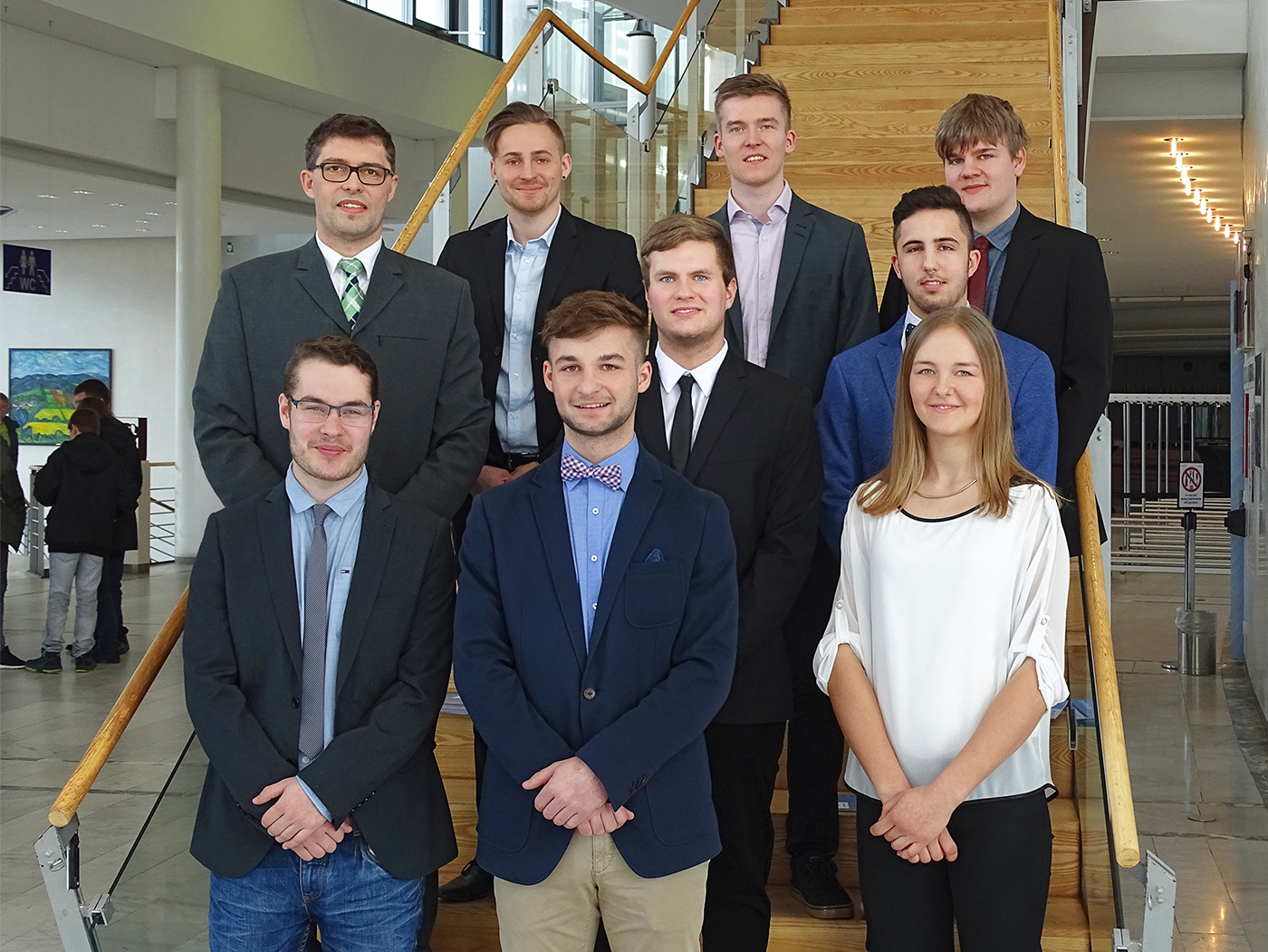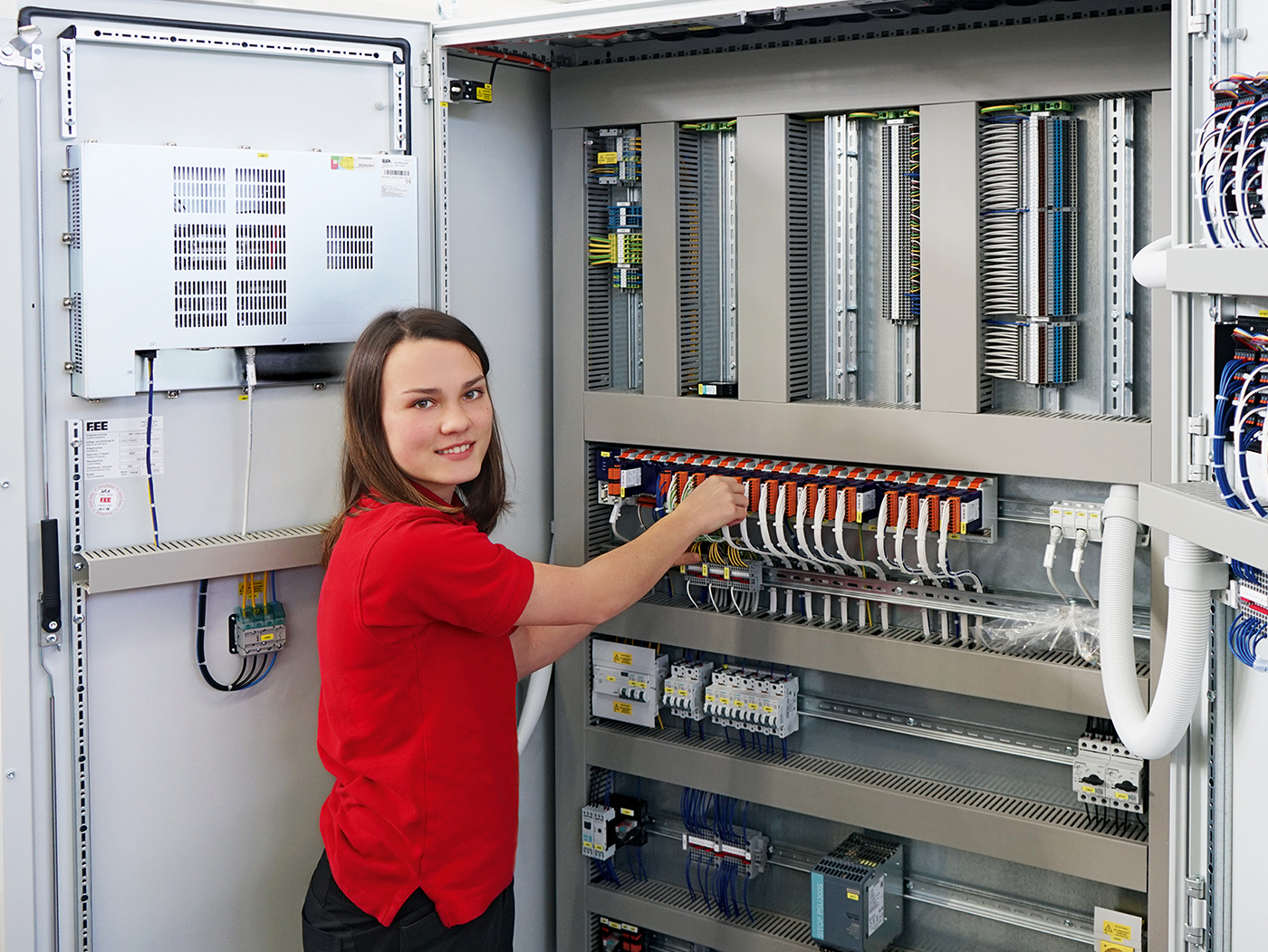The intelligent light at the workplace that dims automatically when the employee leaves the workplace; modern hydroelectric power stations that automatically adapt to changing water levels and flow speeds in order to generate energy as efficiently as possible; Painting robots in an automotive plant that know exactly which car type comes next and how much paint is to be applied at which points on the body; or the automated building management system of the new building of a company headquarters that controls lighting, blinds, ventilation, heating, air conditioning and the complete energy management via different zones independently and holistically at any time: Exciting topics from a wide field of activity. But who develops and installs such things? The answer is: Electronics technician for automation technology.
F.EE, specialist for automation technology from Neunburg v. W., was awarded for the sixth time in a row in Weiden in the past few days as the best training company in the North Upper Palatinate for this training – reason enough to take a closer look at this promising training occupation for people interested in physics, technology and programming.
What does an electronics technician for automation technology do?
Electronics technicians for automation technology are involved in the development and testing of control electronics, i.e. they set up complex industrial plants of various industries controlled by software via programmable logic controllers (PLC). They ensure that the interaction of individual electrical components ultimately results in an automatically operating overall system - such as a hydroelectric power plant, a building control system or a production line.
What makes the training so special?
Creating control programs, integrating IT systems into networks or assembling, wiring and programming automation components: These are only some of the contents that are taught during the three-and-a-half-year training period in the company and vocational school. F.EE has a long tradition of training as an electronics technician in automation technology. Since 2004, 73 trainees have successfully completed their apprenticeships here.
"They learn everything they need to know to make an industrial plant work the way it is supposed to," says F.EE training manager Thomas Schmid. "Our aim is to impart a complete knowledge of electrical engineering and mechatronics as well as technical skills and planning and programming competence," Schmid continues. The mix of different fields of application, such as conveying or robot technology as well as hydropower, contributes to the fact that the training is considered exciting and varied. Already in the first weeks of the training you will practice on programmable controls with simple logic modules. At the end of the training, the graduates are then able to carry out extensive control programming, install electrical systems and switch cabinets and commission the systems at the customer's site.
The best in series - not without reason
The fact that F.EE was awarded for the sixth time in a row as the best training company for the North Upper Palatinate at the ceremony a few days ago is equally due to motivated graduates and committed trainers. Among the 169 honoured trainees, the electronics technicians in the field of automation technology were the largest group with 66 graduates. Johannes Roith, the best of the year, F.EE graduate and speaker of all honoured, emphasised in his speech at the event, which took place in a festive setting in the Max-Reger-Halle, in particular the variety during his training period. Some of the automation projects, which he was already allowed to accompany during this time, even took him abroad.
Training manager Thomas Schmid sums up the continuous success: "The overall package makes the difference: We actively prepare for exams and offer internal advanced training and courses, such as health and etiquette seminars and learning courses. In addition, we also strive to convey content that is not necessarily part of the regular training content, but which significantly increases the professional competence and the knowledge of interrelationships among the trainees". These include, for example, virtual commissioning using 3D simulation software or CAD training courses". In addition, the training as a whole is consistently further developed and improved every year," the training manager continues.
Use application chances.
Anyone who finds automated industrial production impressive and wants to understand, maintain and develop its processes is exactly right in the world of industrial automation. Application and selection processes for the new trainee years run almost throughout the year at F.EE.


